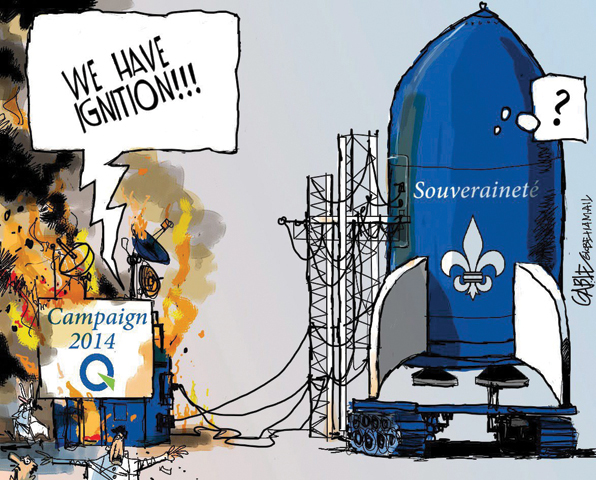
Media sources often broadcast the results of polls conducted during elections. Such polls provide information about how well the parties are doing in a campaign. But does that information affect voting behaviour? Research suggests that voters are susceptible to a “bandwagon effect”: they will be more likely to vote for a candidate if a poll tells them (accurately or inaccurately) that that candidate is favoured by the electorate (Mehrabian, 1998; Morwitz & Pluzinski, 1996). Although the effect is small, it could significantly influence the results of a closely contested election. Is this a good or bad form of informational influence?
BRIAN GABLE/THE GLOBE AND MAIL/CP IMAGES